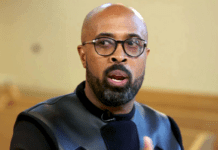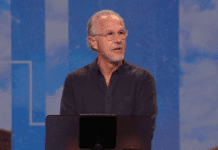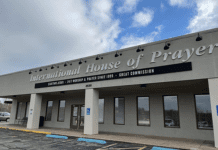In addition to Pastor Thabiti Anyabwile, the pastors involved in launching the network include:
–John Onwuchekwa (Cornerstone Church in Atlanta, Georgia)
-Darryl Williamson (Living Faith Bible Fellowship in Tampa, Florida)
-Louis Love (New Life Fellowship in Vernon Hills, Illinois)
-Jeremy McClain (Mercy of Christ Fellowship Church in Washington, DC)
-Aaron Reyes (Hope Community Church in Austin, Texas).
Other pastors are participating as well, said Anyabwile, including Brian Davis (Risen Christ Fellowship in Philadelphia, Pennsylvania) and Miguel Davilla (Hampton Roads Fellowship in Newport News, Virginia).
Pastor Thabiti Anyabwile Addresses Potential Misconceptions
There are several misunderstandings people might have when they hear that The Crete Collective is targeting communities of color. “One misconception,” said Anyabwile, “is that because we are focusing on Black and Brown neighborhoods, we intend to be excluding other neighborhoods. Nothing could be further from the truth.” It takes the whole church to do what they are trying to accomplish, he said, and they have many partners who are not people of color, but who are still “enthusiastically involved, and we’re very grateful for that.”
Regarding the idea that the network is ignoring the gospel in favor of social justice, Anyabwile noted that Jesus preached the Kingdom and healed the vulnerable. The New Testament letters, such as James, teach that we are to show our faith by our works. So it is not accurate to say that The Crete Collective is neglecting the gospel by targeting specific communities. “The gospel is of first importance,” said the pastor,” and these will be gospel-preaching churches.”
The strategies of The Crete Collective bear many similarities to modern missions work. Wise missionaries are careful to learn about and observe the cultures they are trying to serve. They also aim to “indigenize” their churches so that they look like the communities in which they reside, instead of being foreign communities.
Another goal common to missionaries and church planters is for the leaders of their churches to be from the actual neighborhoods where the churches are planted. A church plant should have “a connectedness to the place and the people that you’re trying to serve with the gospel,” said Anyabwile. Finally, the pastor noted that both missions work and church planting rely on the generosity of God’s people so that leaders will not be distracted from ministry due to worries about how they will survive.
Not only does Anyabwile believe there is nothing anti-biblical about targeting specific people groups with the gospel, he sees doing so as essential to effective ministry. Based on his 20 years as a participant and leader in evangelicalism, the pastor says, “I’m pretty convinced that it requires that kind of specificity if we are ever going to see real inroads into neglected communities.”
But Anyabwile also hopes people will understand that when they look at underserved neighborhoods, they should not simply see one story of crime, dysfunction, and poverty. In reality, these neighborhoods are full of diverse stories of people trying to provide for their families and live the best lives they can. “These are people made in God’s image,” he said, “not people to be feared.”
You can partner with The Crete Collective through prayer, with your finances, and by spreading the word about the movement. Says Anyabwile, “We believe the Lord is up to incredible things.”
Help us spread the word with an RT. We believe the Lord is up to incredible things with @CreteCollective! Find out more at https://t.co/7056nnOoyC.
And check out our intro video: https://t.co/G9BRg2o3Aw
— Thabiti Anyabwile (@ThabitiAnyabwil) November 19, 2020











